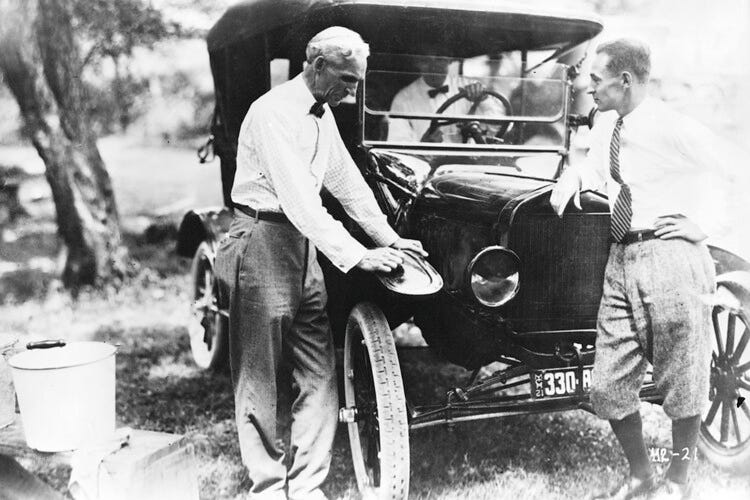The Battery Arms Race: Big Oil’s Big Bet in the Trump Era
Here’s the playbook that history shows us about big oil’s push into the battery supply chain.
"Businesses that grow by development and improvement do not die." –Henry Ford
Henry Ford was an industrial tycoon who pioneered the automotive industry by making cars accessible to everyday people. The Ford Model T was a result of his legendary manufacturing process. But his business strategy then was built around a playbook crucial to industrial transformations today. As the energy transition moves forward, the biggest oil giants are aware of this and they’re making strategic moves right now – as we detail below.
While Ford understood that the supply chain was critical to his operational success, there was more to the story. Yes, he was committed to building industrial systems that could lower costs to open up the automotive market to more consumers. However, he also found revolutionary success by understanding that the supply chain was key to profitability.
The Ford Playbook
You see, Ford’s vision was more than just creating an innovative product and pen deals with other suppliers. He wanted to overhaul the supply chain to cut costs. Ford wanted to have a hand in every link of the chain to impact the company’s bottom-line results.
That’s why Ford purchased entire rubber plantations in Brazil, acquired hundreds of thousands of acres of timber forestland in Michigan’s Upper Peninsula, and bought coal and iron mines across Kentucky and West Virginia. The strategy pushed the automotive world forward. It also made Ford one of the most significant companies of its generation.
A century later, a page out of the Ford playbook is re-emerging that will impact the automotive industry once again. Executives across multiple sectors are now betting big on battery technology. They are also taking steps to control the supply of raw materials that make the batteries that will drive the energy transformation forward.
Batteries and battery technology serve as the bridge between renewable energy generation and consumers. Batteries are essential because they offer the ability to accept, store and release electric power on demand. Economic efficiency, competitive stature, and energy independence are all at stake.
The technologies unlocked by batteries are also the key drivers behind electric and hybrid vehicles. That’s why Tesla made a whopping 31% of its profits last quarter from its energy storage unit, double that of its auto profits. Elon Musk understands that supply-chain control is part of this equation, as do many across the business world.
In this era of electrification, critical materials like lithium, nickel, graphite and cobalt are crucial to the battery supply chain. And while China and countries under its influence might be the biggest global suppliers of those materials right now, other countries are clamoring to reduce that reliance. So are major companies looking to lead in the energy transition.
Keep reading with a 7-day free trial
Subscribe to Prinsights with Nomi Prins to keep reading this post and get 7 days of free access to the full post archives.





